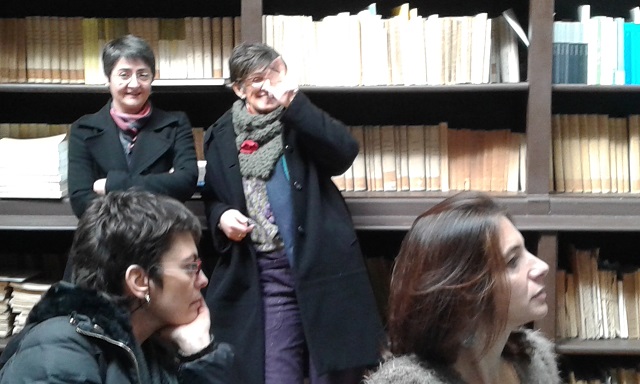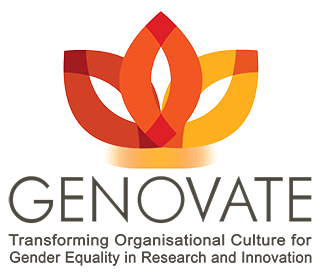 The GENOVATE Community is a platform which enables GENOVATE partners to share institutional information and case studies, and facilitates the coordination of a buddy system for bench learning.
The GENOVATE Community is a platform which enables GENOVATE partners to share institutional information and case studies, and facilitates the coordination of a buddy system for bench learning.
The GENOVATE Community consist of seven GENOVATE partner institutions; the GENOVATE International Advisory Board; key strategic collaborators and stakeholders and the general public. It is a mechanism designed to facilitate meaningful knowledge exchange across the community at local, national and international levels within each of the partner institutions’ countries, across Europe and globally.

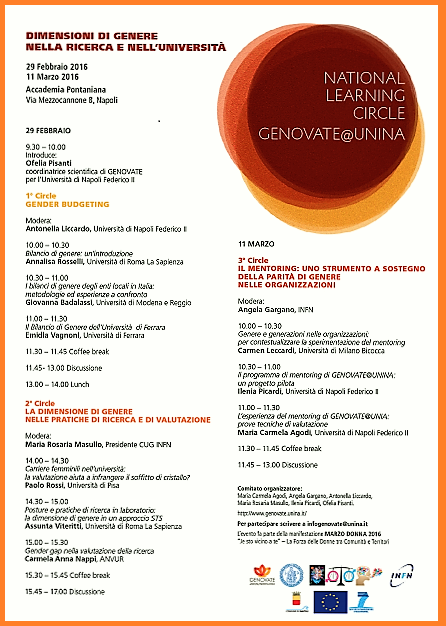
The National Learning Circles (NLC) organized by the UNINA-GENOVATE team on 29 February and on 11 March 2016 at the Academia Pontaniana of Federico II University (UNINA) have provided the opportunity to discuss the key actions of the UNINA Gender Equality Action Plan (GEAP) more in depth, with both national and local experts in related fields. UNINA’s GEAP consists of:
1) Gender mainstreaming in STEM fields
2) Gender Budgeting
3) Code of Practice for a gender dimension in research evaluation
4) Mentoring Program
5) Gender Observatory
GEAP sustainability and dissemination strategies were shared by the UNINA team with the presenters and the attendees so as to receive feedback, and establish and/or reinforce cooperation among national and local academic and non-academic institutions working on gender equality.
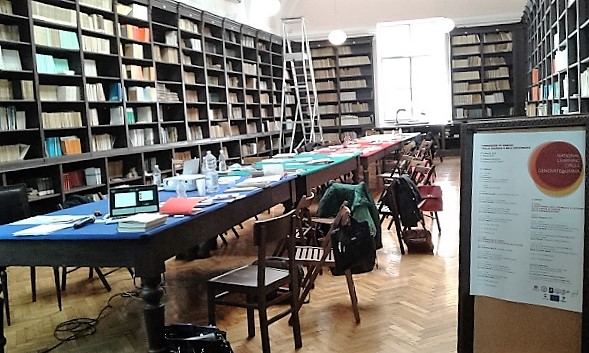
National Learning Circles: sessions
The first two Circles (held on 29 February 2016) have addressed 1) Gender Budgeting and 2) Gender Dimension in Research and Evaluation respectively; the third Circle (held on 11 March 2016) has addressed Mentoring as a Tool to Promote Gender Equality. All sessions were very well attended. Dr. Ofelia Pisanti (UNINA-GENOVATE National Scientific Coordinator) introduced the National Learning Circles and provided a general overview of the GENOVATE project at UNINA.
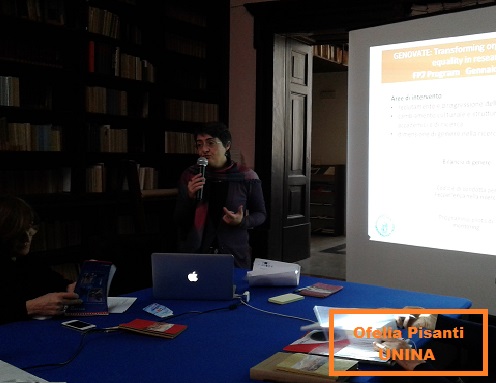
29 February 2016
- morning session -
In the Gender Budgeting session (facilitated by Dr. Antonella Liccardo) we had three speakers, of which Dr. Annalisa Rosselli (UNIROMA2) provided the theoretical framework for the next two presentations by Dr. Giovanna Badalassi (UNIMORE) and by Dr. Emidia Vagnoni (UNIFE), on gender budgeting in local municipalities and on gender budgeting in academic institutions respectively. This format was intended to illustrate Gender Budgeting in two different institutional contexts (i.e. academic and non-academic), and to promote a discussion about differences and similarities in methods and findings.
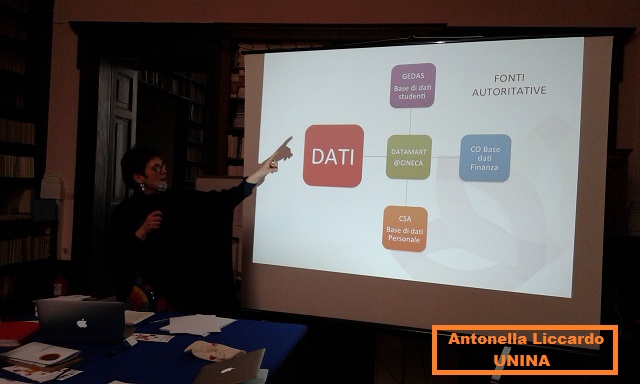
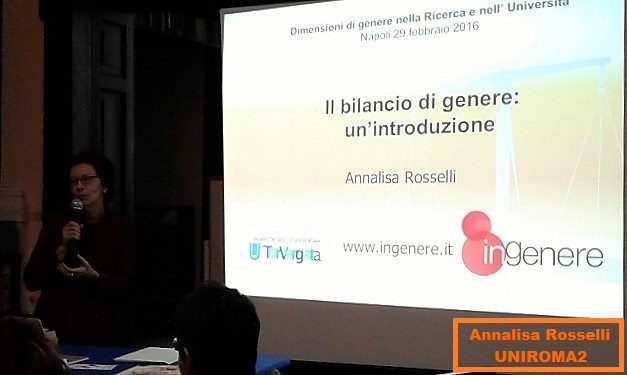
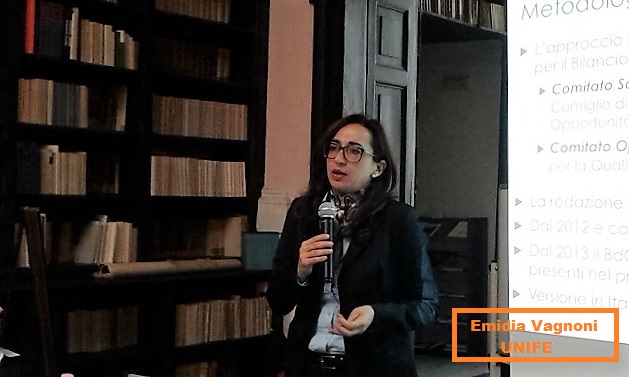
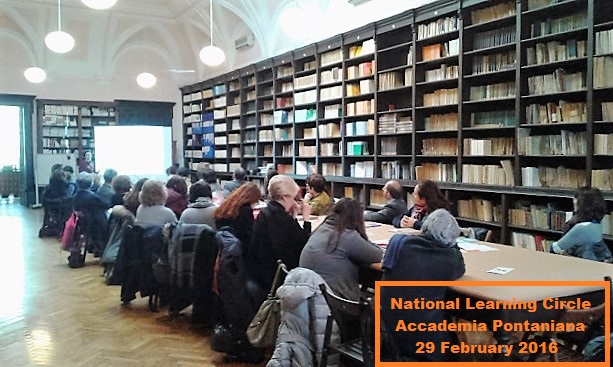
29 February 2016
- afternoon session -
For the Gender Dimension in Research and Evaluation session (facilitated by Dr. Maria Rosaria Masullo) we also had three speakers, of which Dr. Paolo Rossi (UNIPI) examined current official (government) research evaluation procedures in Italy from a gender perspective; Dr. Assunta Viteritti (UNIROMA1) analyzed women researchers' different attitudes and experiences in the Science, Technology and Society (STS) field; and Dr. Carmela Anna Nappi (ANVUR) offered the perspective of the Italian government research-evaluation schemes on gender gap in academia.
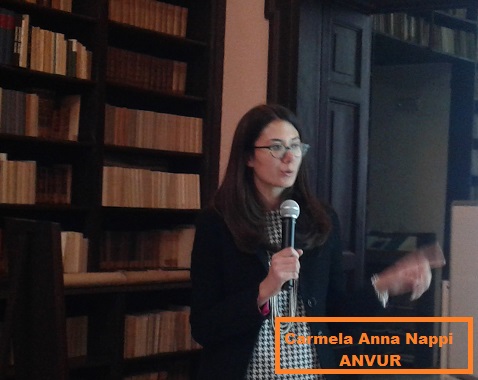
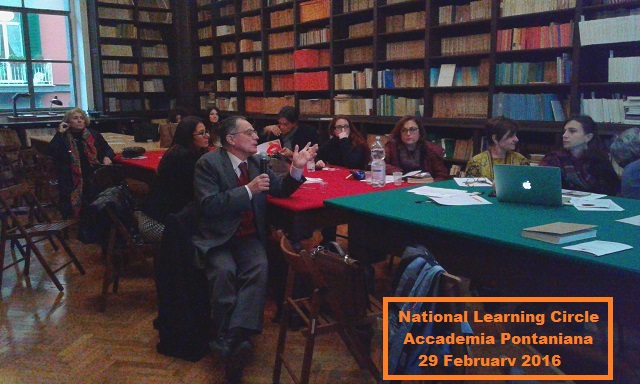
11 March 2016
- morning session -
The third Circle on Mentoring as a Tool to Promote Gender Equality (facilitated by Dr. Angela Gargano) started with Dr. Carmen Leccardi (UNIMIB) who introduced the major theoretical perspectives on the benefits and the challenges of mentoring programs from a gender perspective. A key action of the UNINA's GEAP, the woman-to-woman Pilot Mentoring Program was illustrated by both Dr. Ilenia Picardi (UNINA) and Dr. MariaCarmela Agodi (UNINA): whereas Dr. Picardi described the background of the Pilot Program (institutional gender budget analysis, individuation of target group, implementation of program, etc.) and the challenges and the novelties emerged from the data, Dr. MariaCarmela Agodi focused instead on the evaluation (in progress) of the UNINA program and described the conceptual framework she has adopted to analyze the data. Some of the questions raised by the presenters concerned the potential of mentoring: can mentoring contribute to structural change besides and beyond supporting individual women's career? If so, to which extent?
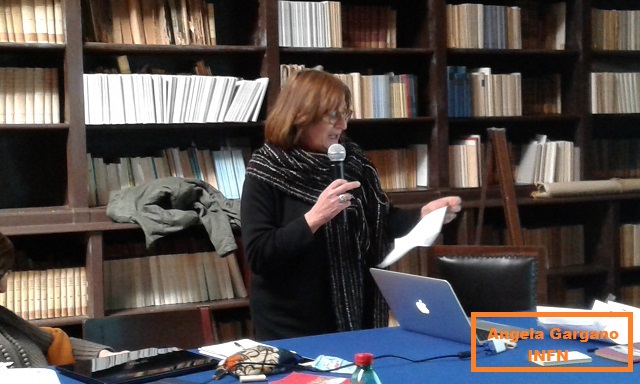
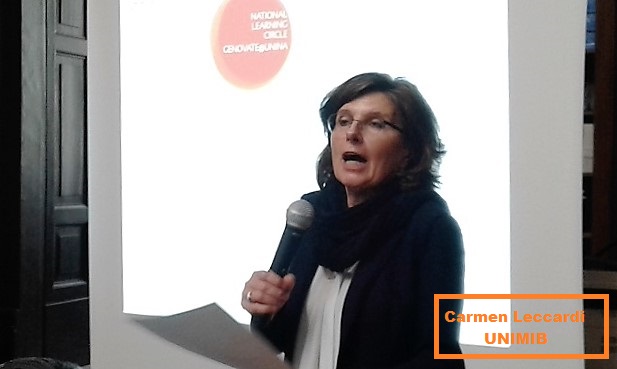
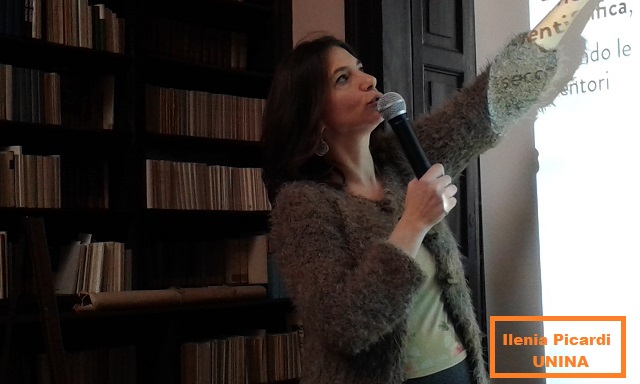
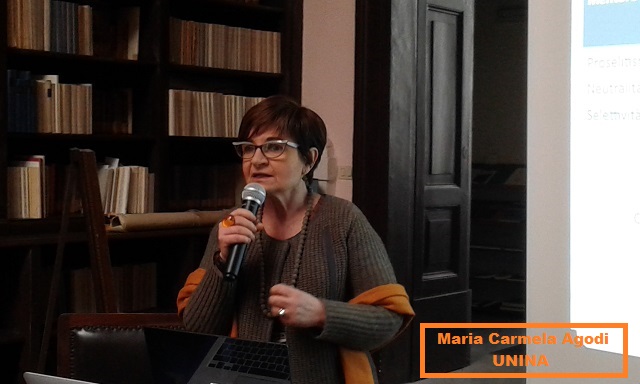
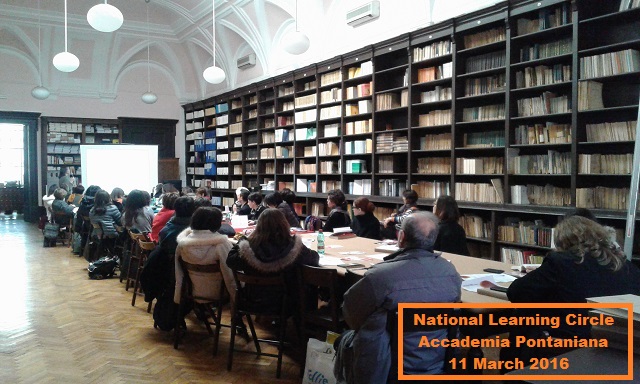
GENOVATE knowledge-exchange, networking, and dissemination strategies
In the wonderful study rooms of the Academia Pontaniana (founded in 1458 for promoting scientfic and humanistic disciplines, this institution counted, among many others, the philosopher Benedetto Croce and the chemist Maria Bakunin as its members), the National Learning Circles have provided a fertile context for both dissemination of GENOVATE work and objectives, and for networking with (and among) national and local stakeholders involved in similar gender-mainstreaming projects.
The GENOVATE National Learning Circles have also been inserted in the program of Marzo Donna 2016 (= Women's March 2016): "Je sto vicino a te - La Forza delle Donne tra Comunità e Territori" (= I'm close to you - Women's Strength in Local Communities) organized by Dr. Simona Marino, City of Naples Councillor and Delegate of the City of Naples Department for Equal Opportunities, in collaboration with the Local Departments for Culture, for Welfare, for Youth and for Work.
Isabella Bonfiglio, Councillor for Equal Opportunities in Employment of the Metropolitan City of Naples attended the February 29 sessions together with Giuliana Camardella, employee from the Metropolitan City of Naples Equal Opportunities area and member of the organizing committee for the event "8 Marzo e non solo" (= 8 March and other stories) in which "Je sto vicino a te - La Forza delle Donne tra Comunità e Territori" is included. The "8 March e non solo" event is also realized in collaboration with the Naples Historic Centre (UNESCO World Heritage Site) Permanent Observatory. Visit the webpage of the initiative for more information:
http://www.comune.napoli.it/flex/cm/pages/ServeBLOB.php/L/IT/IDPagina/29432
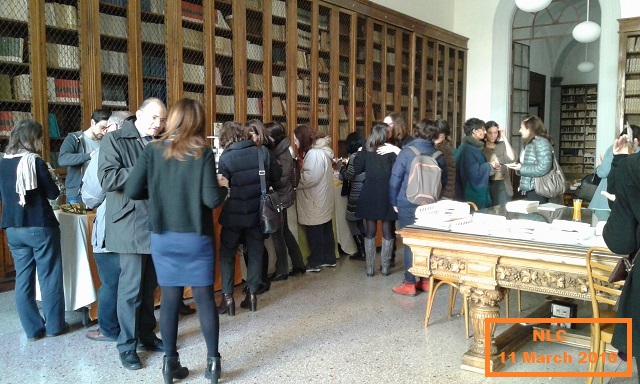
The UNINA-GENOVATE team has also liaised with a catering service managed by the Social Cooperative E.V.A., which operates through several centres (in different locations of the Campania region) to prevent and stop male violence against women. The women's shelter "Casa Lorena", in particular, is in a seized Camorra (vernacular name for local mob) asset and offers legal, psychological and job orientation services to women. Visit the website of the Social Cooperative E.V.A. for more information:
http://www.cooperativaeva.com/centri-antiviolenza/centro-eva/
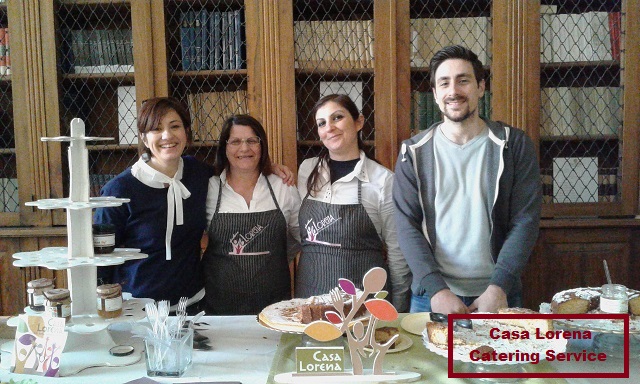
National Learning Circles and GENOVATE sustainability strategies @ UNINA
Networking, outreach, and dissemination activities are also strictly connected to our GEAP sustainability strategies.
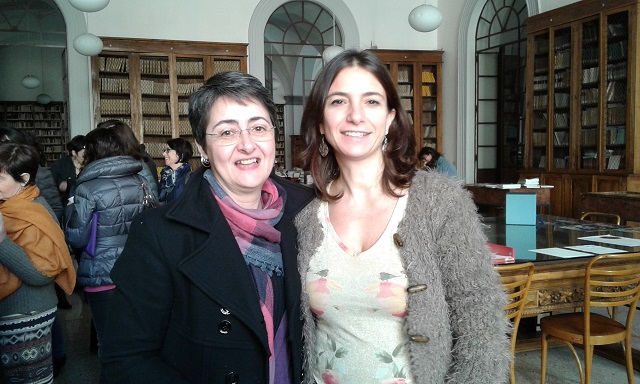
In the case of gender budgeting, the consolidation of a national network of academic and non-academic institutions and renown experts in gender and social budgeting is in progress, and it is expected to submit an official proposal for establishing gender budgeting as a sine-qua-non criterion for public funding to MIUR (Ministero dell'Istruzione, dell'Università, e della Ricerca = Ministry of Education, University, and Research).
In the case of the mentoring program, the UNINA-GENOVATE team is working to create a permanent mentoring program on campus, as a legacy of GENOVATE to UNINA.
Finally, the UNINA-GENOVATE team will submit the official proposal for establishing a permanent Gender Observatory on University and Research to the UNINA Rector by June 2016.
